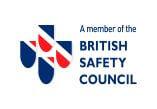Getting children involved with cleaning and tidying the house is a great way to give them responsibility, and teach them the importance of keeping a clean and healthy household. Cleaning is often thought of as something to avoid at all costs by children, but trying to approach it in a positive light can turn cleaning into something fun that earns them rewards. SCS Cleaning has some tips for getting your children to enjoy cleaning.
- Start cleaning early
Allowing your child to take ownership of certain chores early on in the life will help them develop cleaning skills that they can take with them throughout life. Why not offer a child a duster as soon as they show an interest in what you’re doing? Getting them to put away their toys, and explaining why it’s important is a good idea too. From as young as two years old, children will understand the importance of taking their used dishes to the sink and putting away their toys. By praising them each time they tidy something, you’re increasing the likelihood of them helping again.
- Little and often
You can’t expect a young child to spend an hour concentrating on cleaning. By cleaning a little each day, rather than a big clean at the weekend, your child is less likely to get bored and will be more willing to get involved. Focus on easy tasks, especially when they’re young, such as helping with the dusting, hanging out laundry or tidying away their toys.
- Make cleaning fun and rewarding
Make cleaning as fun as possible to engage children with household cleaning. You can do this in a number of ways, such as making games out of vacuuming (see who can vacuum their room the fastest), split the family into teams, with one team cleaning upstairs and one downstairs, with whichever team doing a better job winning.
Reward charts are a great way for promoting children to help with cleaning. After they’ve completed a certain number of household tasks, they earn a small treat or reward, keeping them interested in keeping the house clean.
For older children, you may want to set up pocket money or an allowance based on how much cleaning they do each week. This means that if they want money to go into town, they have to clean the house first.
- Don’t use cleaning as a punishment
By using cleaning as a punishment, you associate cleaning with negativity, which will make your child resist cleaning and see it as something to be avoided at all costs. You don’t want to get into a battle with your children every time you want them to help out around the house, so making sure that cleaning isn’t seen as anything apart from positive is going to help you engage them.
- Age-appropriate tasks
Children will be able to take on more cleaning tasks as they get older, and it’s important to give them age appropriate tasks to keep them engaged and enjoying helping you clean. For young children, tidying away their toys, making their bed and helping to dust are small easy tasks that will give them a sense of achievement. When they get a bit older, you may want to introduce washing dishes, helping with the laundry, polishing and vacuuming around the house. Teenagers can easily help you clean the bathroom, the kitchen and windows.





![scs[3]](/wp-content/uploads/2014/09/xscs3.jpg.pagespeed.ic.4xhVqwm0EY.jpg)


